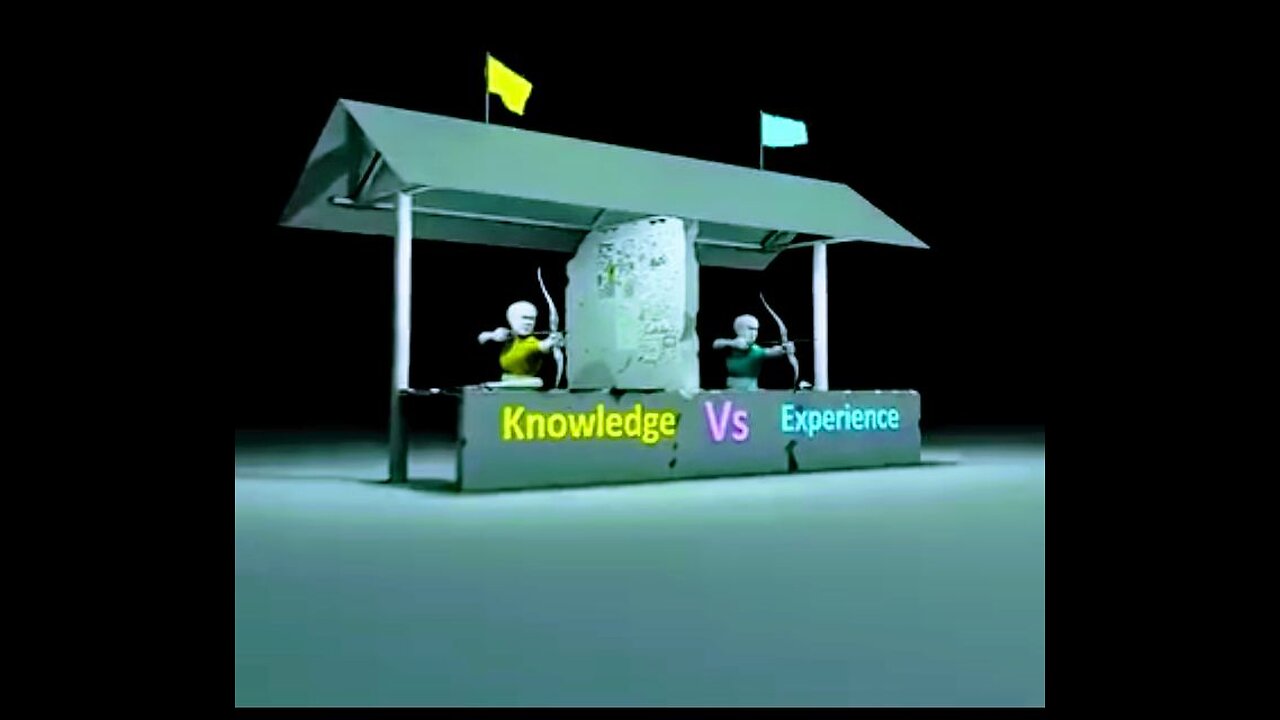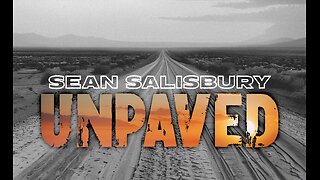Premium Only Content

Knowledge And Experience
Knowledge and experience are two important components of learning and development. They are often used interchangeably, but there are some key differences between the two.
Knowledge is the accumulation of information and skills that we have learned through education, training, or experience. It can be factual, theoretical, or procedural.
Experience is the knowledge or skill that we have acquired through direct participation in events or activities. It is often gained through trial and error, and it can be tacit (unconscious) or explicit (conscious).
Knowledge and experience are both important for success in many areas of life. Knowledge can help us to understand the world around us, and it can provide us with the foundation for learning new skills. Experience can help us to apply our knowledge in real-world situations, and it can give us the confidence to take risks and try new things.
The relationship between knowledge and experience
Knowledge and experience are closely related, and they often complement each other. For example, knowledge can help us to interpret our experiences, and experience can help us to apply our knowledge in new situations.
In some cases, knowledge can be more important than experience. For example, if we are trying to solve a complex problem, we may need to have a deep understanding of the underlying principles before we can apply our experience to find a solution.
In other cases, experience can be more important than knowledge. For example, if we are trying to learn a new skill, we may need to practice it repeatedly before we can master it.
The importance of both knowledge and experience
Both knowledge and experience are important for success in many areas of life. However, there is no single answer to the question of which is more important. The relative importance of knowledge and experience will vary depending on the specific situation.
In general, it is important to have a balance of knowledge and experience. This will allow us to draw on both our theoretical understanding and our practical skills when we are faced with new challenges.
How to develop knowledge and experience
There are many ways to develop knowledge and experience. Some common methods include:
Education. This is a formal way to learn new information and skills.
Training. This is a more specialized form of education that focuses on developing specific skills.
Experience. This is the most common way to develop knowledge and skills. It can be gained through work, hobbies, or other activities.
Reading. This is a great way to learn new information and expand your knowledge base.
Talking to people. This is a great way to learn from others' experiences and gain new insights.
Conclusion
Knowledge and experience are both important for success in many areas of life. The relative importance of knowledge and experience will vary depending on the specific situation. However, in general, it is important to have a balance of knowledge and experience in order to be successful.
-
 LIVE
LIVE
LFA TV
18 hours agoBREAKING NEWS ALL DAY! | TUESDAY 9/30/25
1,084 watching -
 LIVE
LIVE
freecastle
6 hours agoTAKE UP YOUR CROSS- May the forces of evil become confused on the way to your house.
238 watching -
 1:23:05
1:23:05
Awaken With JP
5 hours agoGetting NUTS! FBI Did J6, Comey Indicted, and More! - LIES ep 110
55K27 -
 2:09:51
2:09:51
Pop Culture Crisis
3 hours agoJK Rowling OBLITERATES Emma Watson, Trump Vs Ariana Grande, Could The Rock be President? | Ep. 926
40.2K8 -
 1:46:23
1:46:23
The HotSeat
2 hours agoCommander In Chief and SECWAR Address The Troops, and I AM HERE FOR IT!
19.7K15 -
![[Ep 759] Resist Digital ID | Dems to Shut Down Gov | Obama Library Funds Tides / Terrorists](https://1a-1791.com/video/fwe2/55/s8/1/8/U/L/m/8ULmz.0kob-small-Ep-759-Resist-Digital-ID-De.jpg) LIVE
LIVE
The Nunn Report - w/ Dan Nunn
2 hours ago[Ep 759] Resist Digital ID | Dems to Shut Down Gov | Obama Library Funds Tides / Terrorists
169 watching -
 1:42:33
1:42:33
The Quartering
6 hours agoFat Soldiers BLASTED, Kirk Assassin In Court, JK Rowling Destroys Emma Watson & Crowder Takes Risk
132K27 -
 1:17:12
1:17:12
Winston Marshall
4 hours agoExposing The EU’s Plot To Destroy Free Speech in America | Mike Benz
62.7K22 -
 1:32:25
1:32:25
Sean Unpaved
5 hours agoMNF Mayhem: Doubleheader Drama, Cheetah's Crushing Fall, & MLB's October Ignition
64.1K2 -
 7:07
7:07
Michael Heaver
4 hours agoBroken UK Uncovers HORRIFYING Truth
24.4K13